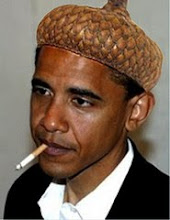To put it bluntly, a mosque with minarets is not the equivalent of a church with a spire. Why? Because Europe’s churches have no political agenda, and because they aren’t obsessed with the painstaking study of ancient “divine” laws that are consistently placed above secular law.
It is precisely this disagreeable aspect of Islam, in contrast with Christianity, that I think we would profit by discussing openly and honestly. Because if I could be sure that a Muslim congregation (with or without its own minaret, even though the minaret adds an extra dose of religio-political power) was founded on the same freedom-based values as, say, the Norwegian state church, and that any “struggle” involving that community was limited to arguments about things like same-sex marriage and whether Muhammed was born of a virgin, they could build as many minarets in my neighborhood as they wanted – because in that case Islam would not represent a challenge to Norwegian liberty and democracy. But unfortunately Islam does represent a challenge. Therefore I pose this challenge to the elite of my country: Of the over 100 Muslim congregations in Norway, name one that will forever fight tooth and nail against sharia and for a secular Norway. If such a faith community exists, it’s doing a very good job of keeping itself hidden.
What the people of Switzerland have understood is that Islam, in its fundamentals, does have political ambitions. By contrast, elsewhere in Europe — and certainly here in Norway — the media have been almost entirely silent about the real-world conditions that help to explain the Swiss vote to begin with. Switzerland already had three mosques with minarets. Then the Turkish cultural association in the town of Olten bought a lot outside of town and applied for permission to build a mosque with minarets. It thereupon emerged that the association’s ideological lodestar was the ultranationalist Alparsan Turkes, founder of the racist National Movement Party and the paramilitary group “The Gray Wolves,” which was responsible for several assassination attempts in Turkey and elsewhere. As several observers have noticed, the ties between totalitarian ideologies such as Nazism, fascism, and Islamism (i.e., political Islam) are intimate. It is not surprising, then, that this so-called “cultural association” is infected by extremism.
Thursday, December 3, 2009
Why the Swiss Were Right to Prohibit Construction of Minarets
An interesting op-ed via Pajamas Media from a Norwegian who tries to explain the logic behind the ban. The crux of the argument is that the Swiss people have looked into who is behind the minaret push, and what Islam means to a secular society. The radical aspects of a political system that also serves as a religion is very frightening to a lot of people. And in the privacy of a ballot box, they can finally express those fears without being directly ridiculed by the deniers who may not have the same understanding of the situation.
Subscribe to:
Post Comments (Atom)


No comments:
Post a Comment